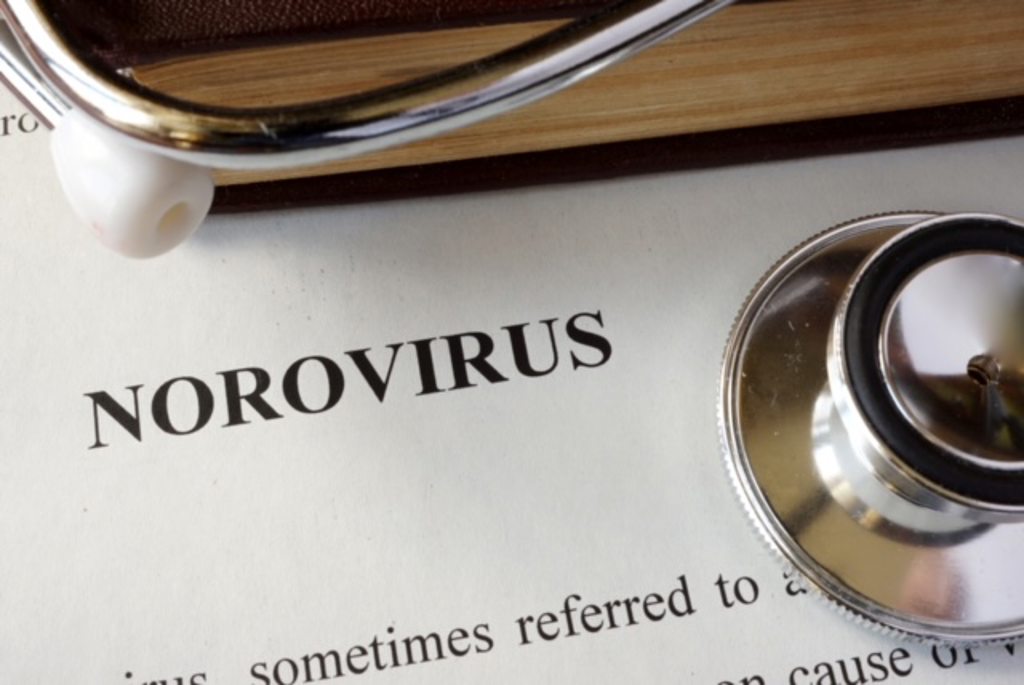Norovirus – The Bug That Spreads Rapidly

Just when people who have been vaccinated for COVID-19 and influenza are feeling a little more comfortable joining gatherings of friends and going out in public places, norovirus is spreading across Pennsylvania. Norovirus is a very contagious illness that causes vomiting and diarrhea. Anyone can become infected and sick with this virus.
“Some people may refer to the norovirus as the stomach flu, but norovirus is not related to influenza – they are two separate viruses,” explained Max Pavlock, DO, who is a family medicine physician at Penn Highlands Healthcare.
Outbreaks of norovirus are common. The virus spreads quickly and easily from person to person. People can also become infected through contaminated foods and surfaces.
Symptoms
“Norovirus causes inflammation of the stomach or intestines. A person usually develops symptoms 12 to 48 hours after exposure; but most people typically recover within 24 to 36 hours,” added Dr. Pavlock.
While the most common symptoms include diarrhea, vomiting, nausea and stomach pain, some people with norovirus have fever, headaches and body aches.
“People with norovirus illness can feel extremely ill, and vomit or have diarrhea many times a day. This can lead to dehydration, especially in young children, older adults, and people with other illnesses,” explained Dr. Pavlock.
Prevention
Unlike other viruses, such as COVID-19 and influenza that have vaccines available for protection, there is not a vaccine to help prevent norovirus illness. However, there are ways to help avoid infection including:
- Washing your hands thoroughly with soap and water before eating or preparing food, as well as after using the restroom or changing a diaper. Norovirus can be present in vomit and feces before a person feels ill. The virus can remain in feces for up to two weeks which makes it even more critical to wash your hands during this time.
- Washing fruits and vegetables carefully and cooking shellfish to an internal temperature of 145ºF. Norovirus is relatively resistant to heat and can survive in temperatures up to 145ºF.
- Cleaning and sanitizing cooking utensils, cooking surfaces and counters before preparing food.
- Allowing others to prepare food while you are sick and at least two days after symptoms are gone.
- Cleaning and disinfecting surfaces after someone has diarrhea or vomits.
- Using a chlorine bleach solution or other disinfectant registered against norovirus by the Environmental Protection Agency.
- Washing clothes and soiled bed linens promptly with detergent at the maximum water temperature and machine drying them at the hottest setting.
Treatment
There is not a specific medication to treat norovirus illness. Antibiotic drugs will not help because they treat bacteria and not viruses.
“People with norovirus should drink plenty of liquids to replace fluids that are lost from vomiting and diarrhea to prevent dehydration,” said Dr. Pavlock.
Summary
Globally, approximately 685 million cases are reported each year. Of that estimate, nearly 200 million cases affect children. Norovirus outbreaks occur most often between November and April.
If you are feeling ill and think you may have norovirus, a healthcare provider will diagnose norovirus after learning about your symptoms. Testing usually is not necessary, but a provider may test a stool sample to confirm the diagnosis.
Whether you or a loved one is ill with norovirus, a sore throat or a minor injury, Penn Highlands Healthcare offers comprehensive family medicine at locations throughout the region. Penn Highlands Family Medicine Clinics can take care of the whole family – from infants through the elderly. For more information or to find a provider near you, visit www.phhealthcare.org/doctor.
